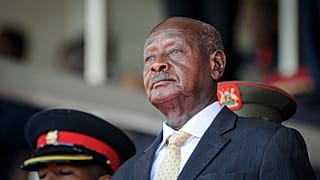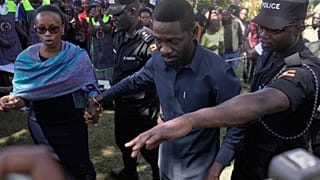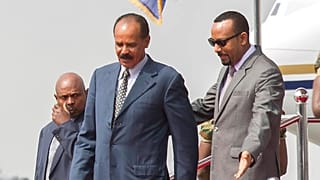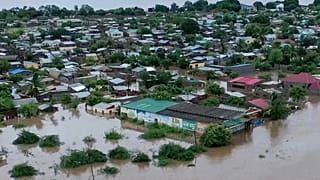Ethiopia
Egypt and Sudan have called for a Security Council meeting after Ethiopia’s decision to start a second filling of the dam's reservoir.
Egypt says the move violates a 2015 agreement and poses an “existential threat” to the people of both countrieswhere 100 million people are dependent on the river as their sole source of water
Egypt argues a decade of negotiations over the hydroelectric dam on the Blue Nile have failed to ensure that water will continue to flow downstream in sufficient amounts to Sudan and to Egypt, where 100 million people are dependent on the river as their sole source of water.
"As we said inside, this is a time, a precedent for the U.N. Security Council to have preventive diplomacy not as peacekeeping missions, but preventive diplomacy at looking at early warning signs and have the preventive measure of building the trust, building the trust in a very important regional organization like the African Union, as well as building the trust between very important countries like Sudan, Ethiopia and Egypt" said Mariam Sadiq al-Mahdi, Sudanese Foreign Minister.
Selishi Bekele, Ethiopian Minister for Water, Energy and Irrigation, believes the concern is uncalled for; 'We believe, Ethiopia believes it is an unfitting use of the time and resources and Security Council to discuss the Grand Ethiopian Renaissance Dam. Nevertheless, I have voiced the concerns and just the causes of my country, Ethiopia. Let me reiterate that we are dealing here with a hydroelectric dam. We are not building a nuclear plant, which is not the first of its kind in Africa or in the world. The world has many experience on hydroelectric dam.'
Diplomats on Thursday urged the U.N. Security Council to require Egypt, Sudan and Ethiopia to negotiate a binding agreement within six months on the contentious issue of water availability.
According to Linda Thomas-Greenfield, US Permanent Representative to the United Nations, the issue could be reconciled.
"We stand ready to support collaborative and constructive efforts by Ethiopia, Egypt and Sudan to resolve the issues over the GERD. We understand that the Nile waters and how these waters are used are important to all three of these countries. And we believe this is an issue that can be reconciled."
The dam is 80% complete and is expected to reach full generating capacity in 2023, making it Africa’s largest hydroelectric power plant and the world’s seventh-largest, according to reports in Ethiopia’s state media.











00:40
IMF approves new $261 million disbursement for Ethiopia
01:01
Senegal through to AFCON final after 1-0 win against Egypt
Go to video
US labels Muslim brotherhood in Middle East as terrorist
Go to video
Egypt urges end to Sudan 'bloodshed' during peace coordination meeting in Cairo
02:01
UN says doctors in Sudan are doing all they can to provide support to people
01:48
Egypt and EU agree on urgent need for second phase of Gaza ceasefire